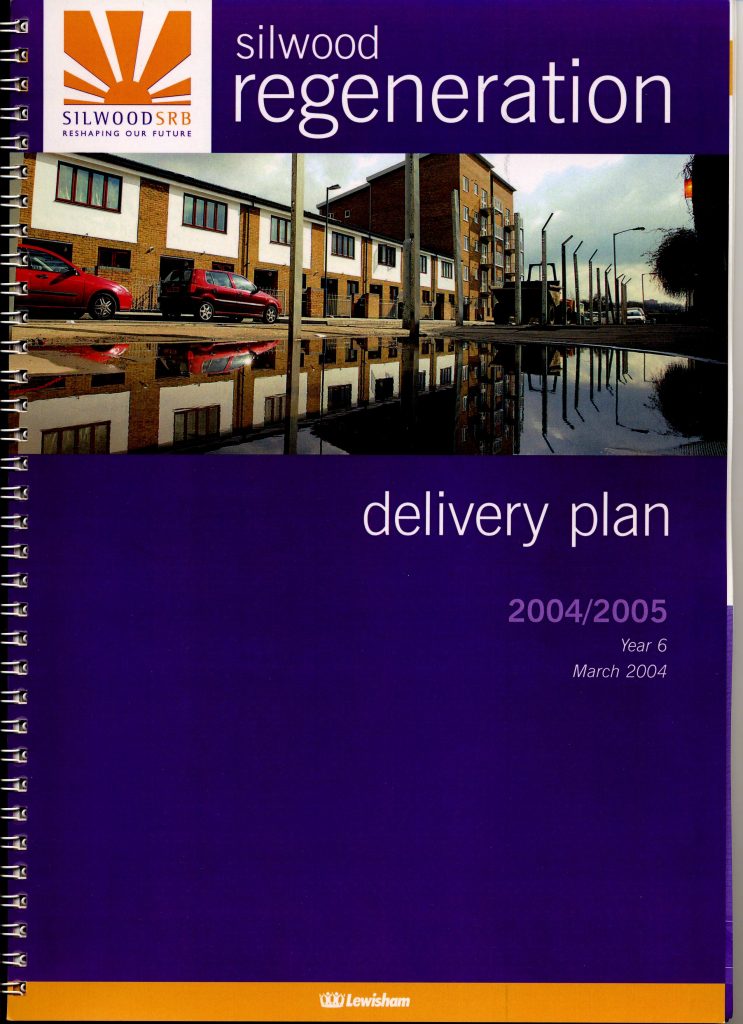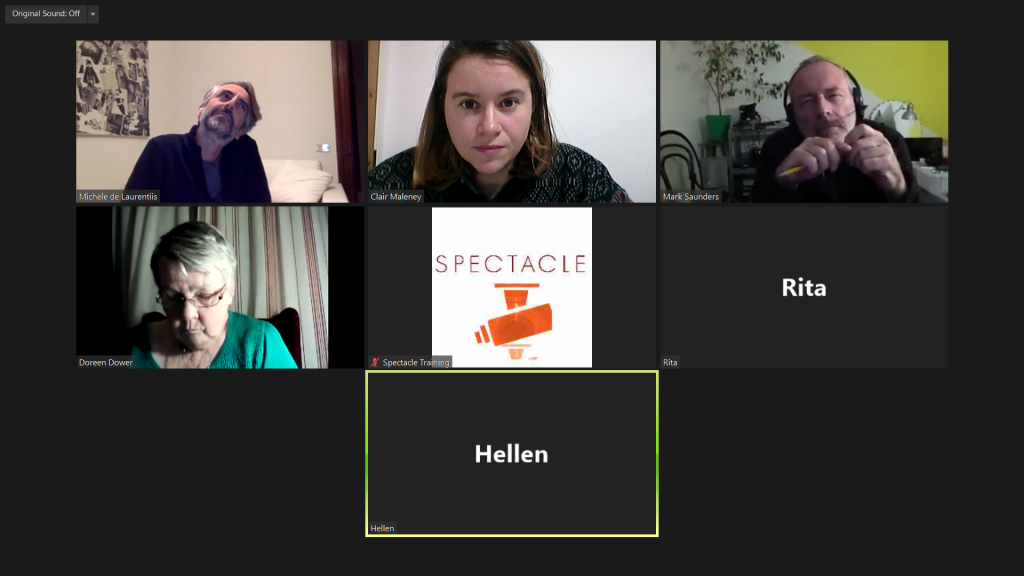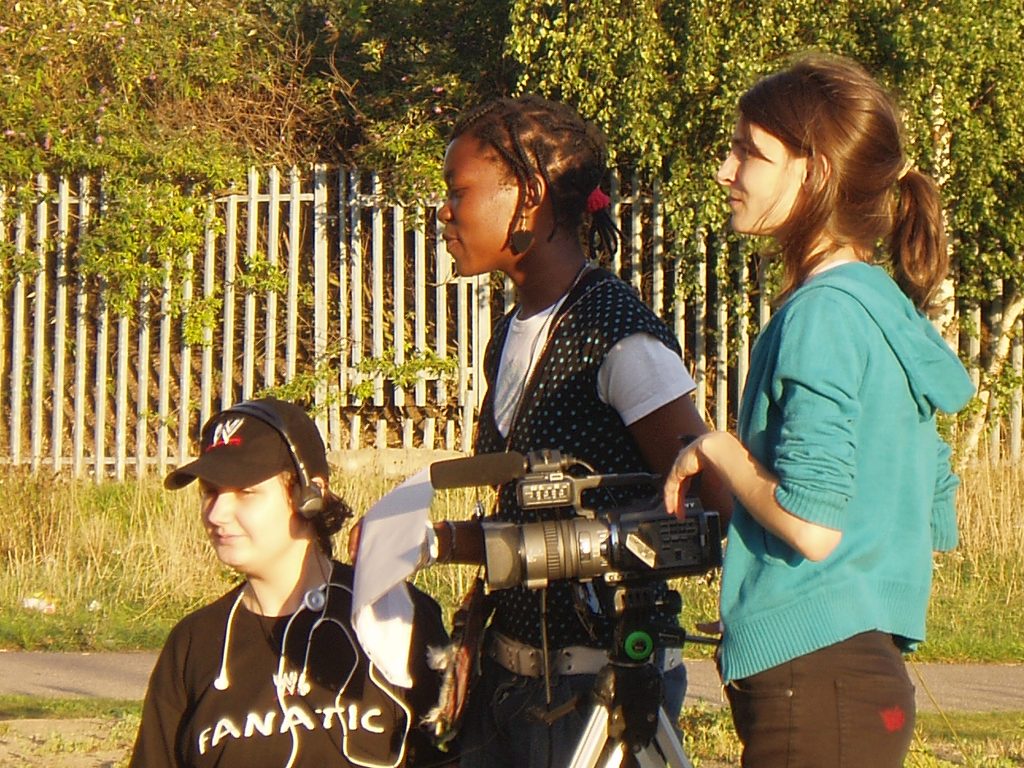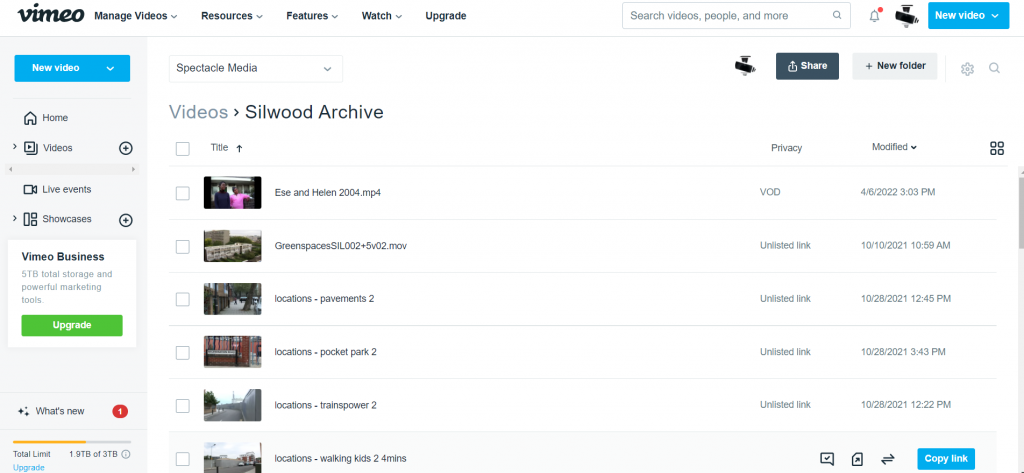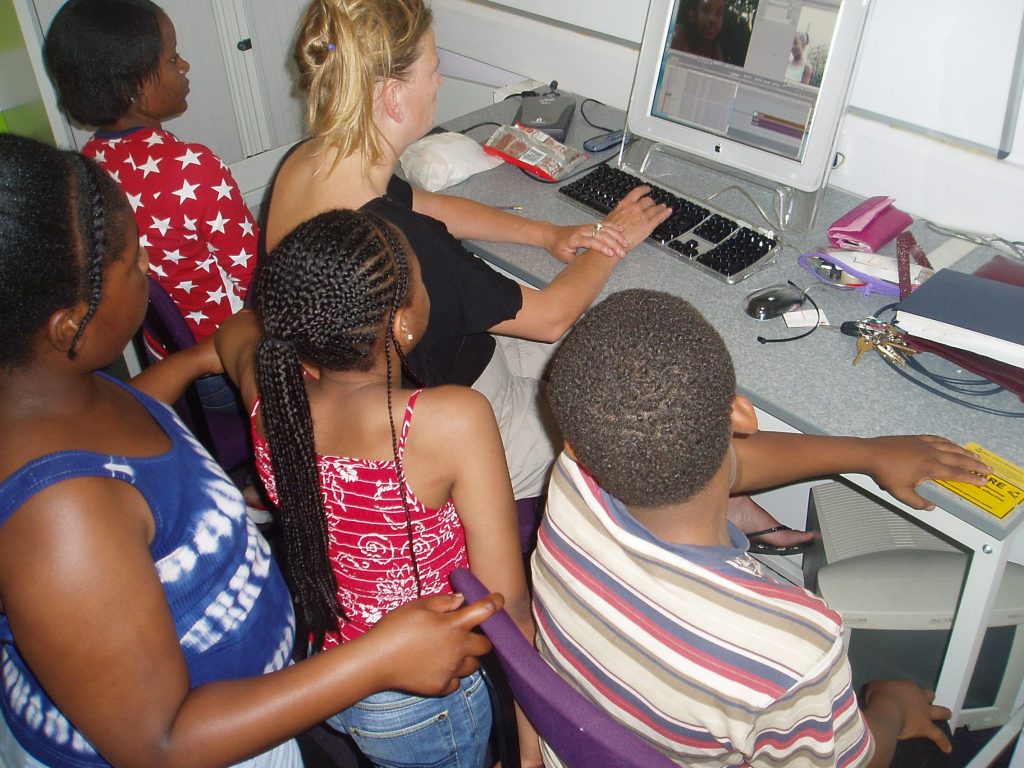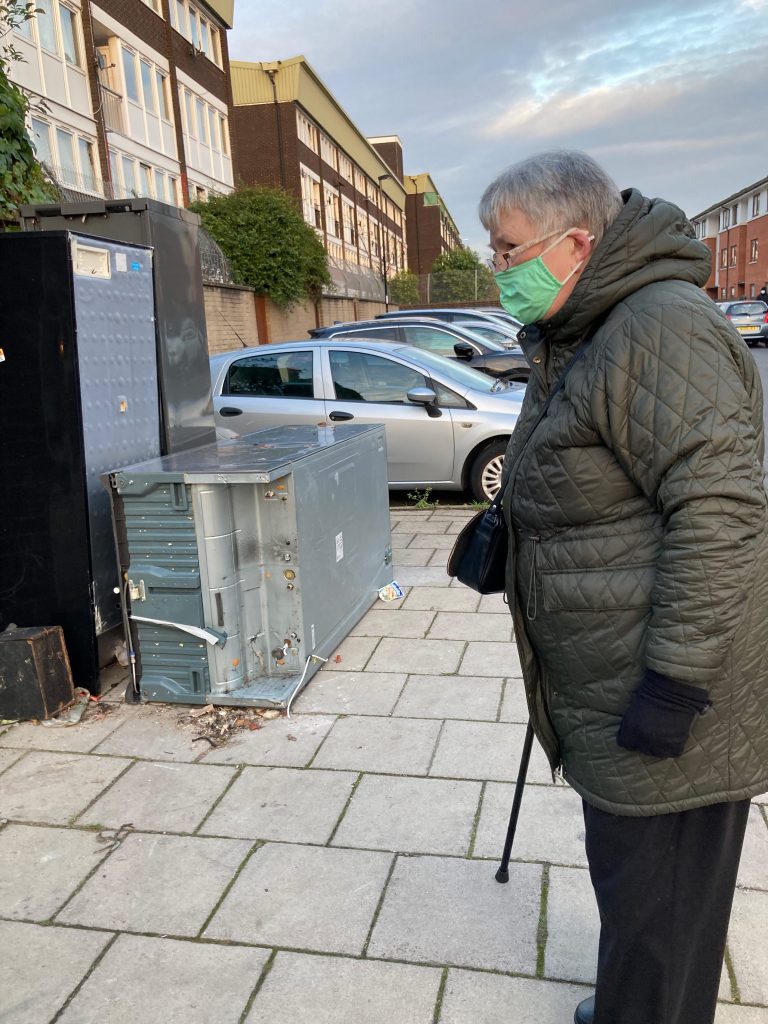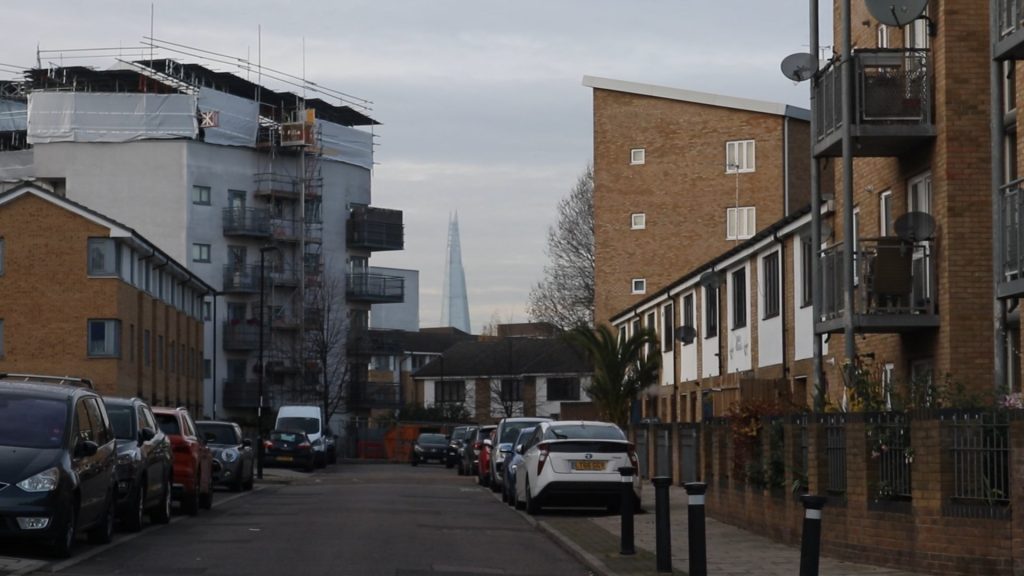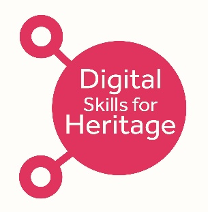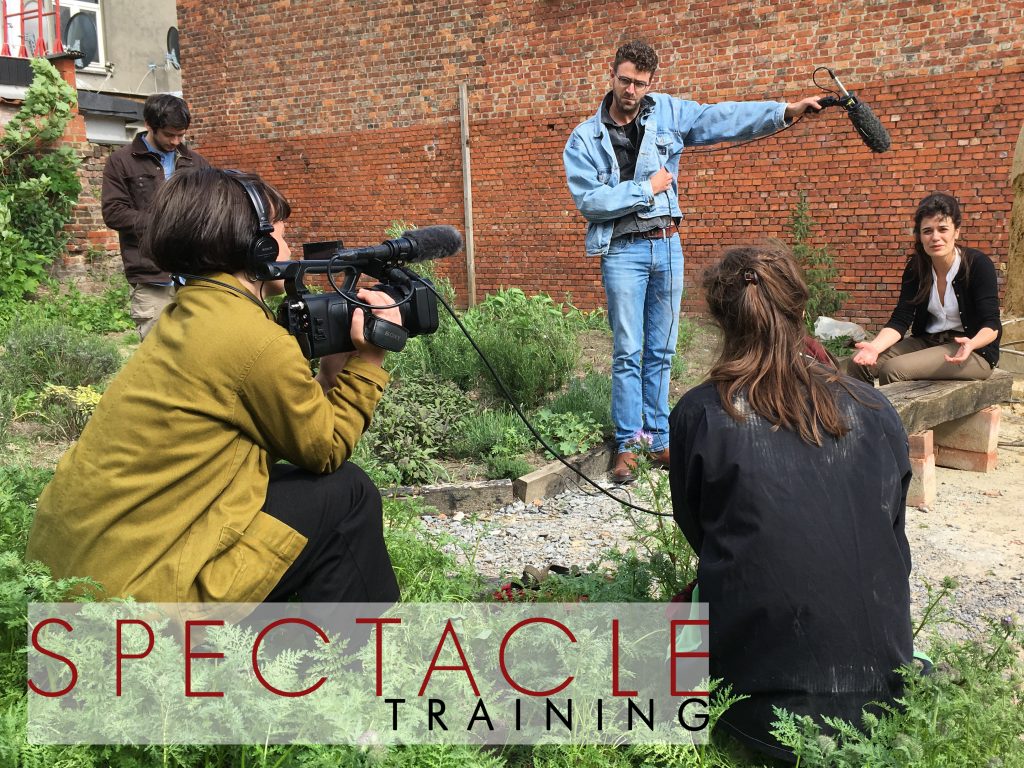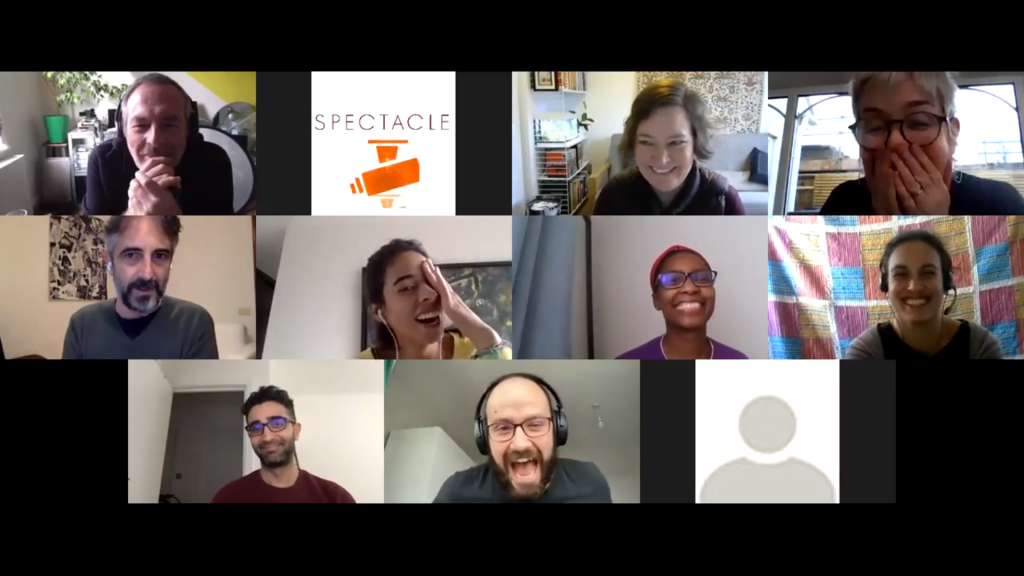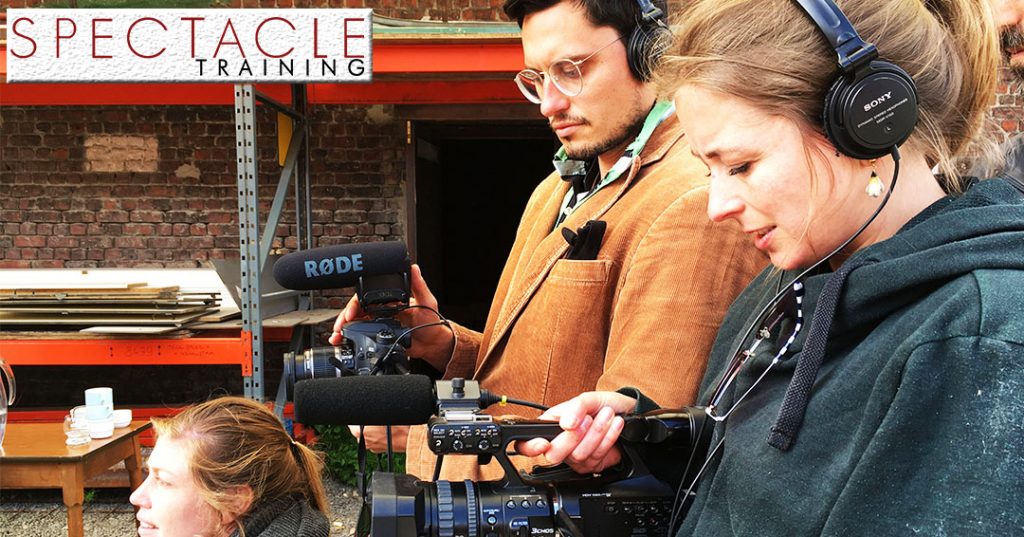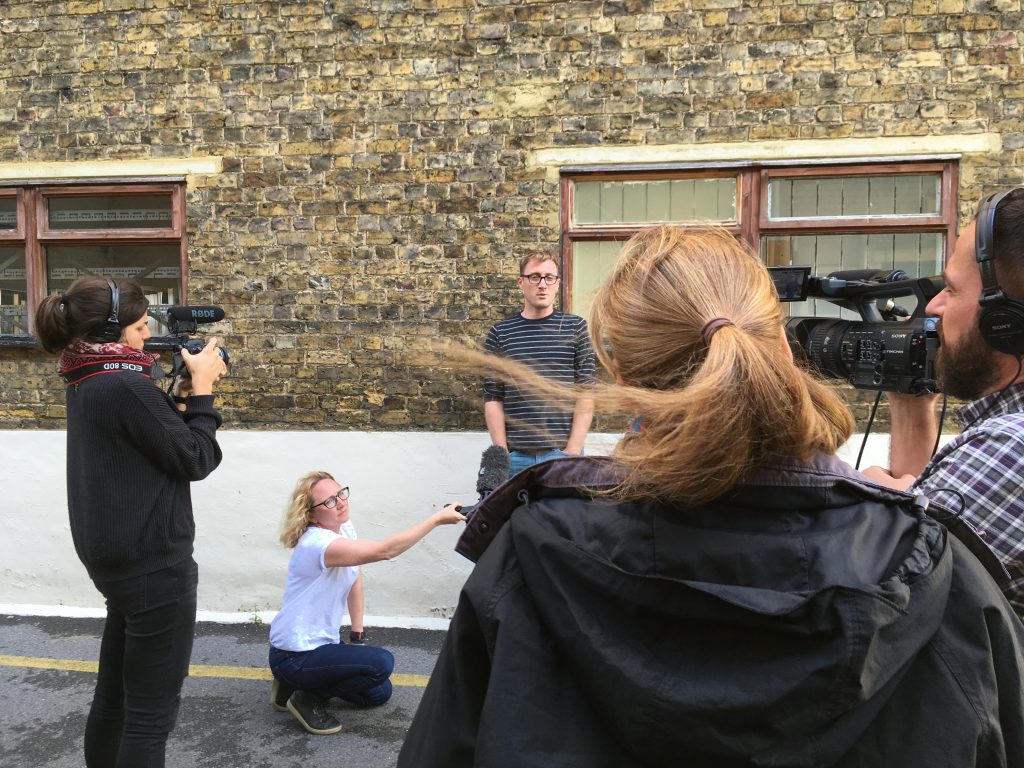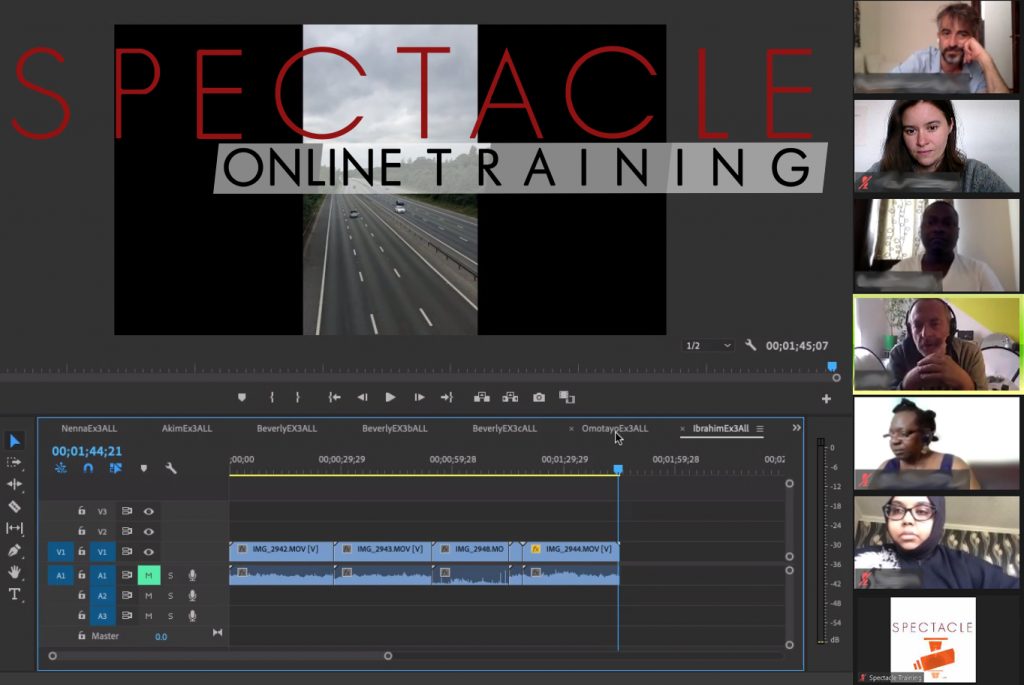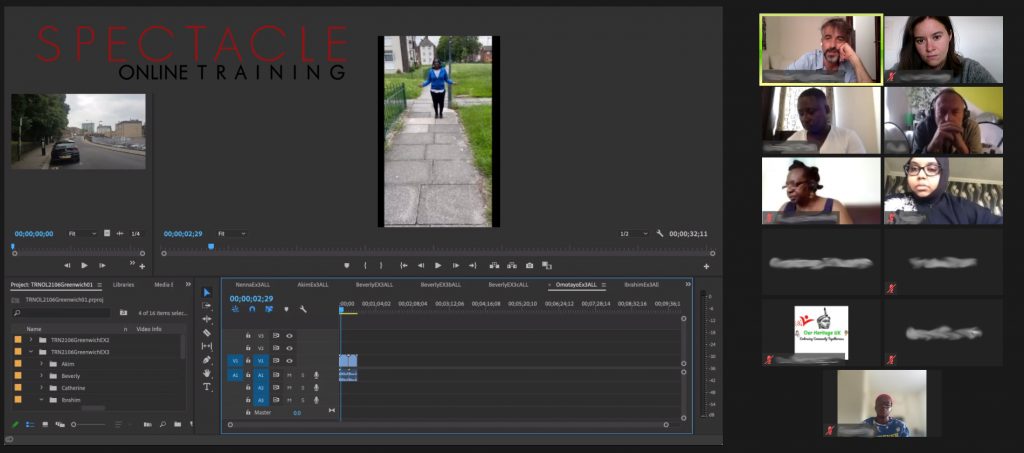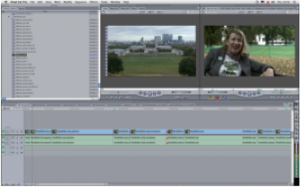In our continuous effort to transfer our Participatory Video expertise as a tool to improve research, engagement, impact and social change, Spectacle over the years has trained hundreds of researchers and has always tailored its training courses to the needs of our trainees. We believe that video is a tool that researchers should not feel afraid to use as a support for their documentation, data analysis and dissemination of results.
In recent years we have developed our methods in a range of projects, using remote work environments to reach out to participants in different parts of the world and adapt to circumstances when travelling is not possible or too costly.
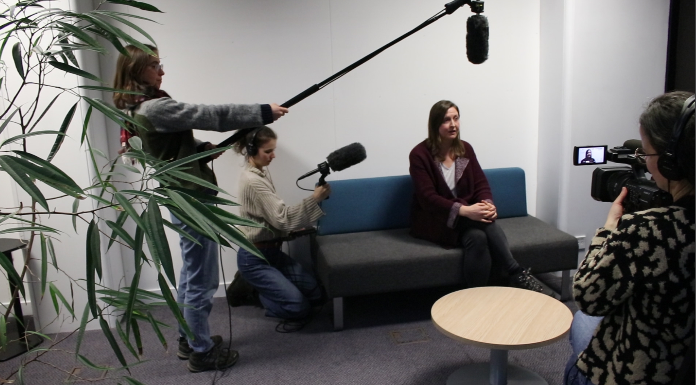
We have evolved a hybrid model to merge the best of what we learned about in-person and remote training. In-person camera production workshops is the best setting for hands-on practical experience and to have access to professional equipment. Remote training is an efficient and cost effective way to learn and collaborate on video editing projects, allowing participants to acquire new skills from home.
We have recently been asked to design a hybrid bespoke training programme for the Hutton Institute in Aberdeen, where we have delivered a 2 day in-person Participatory Video workshop to a group of 11 researchers. Social researchers from the institute, all planning to include video in their ongoing and future projects, have learned how to use video to document and support investigations and explored the use of participatory video tools for research.
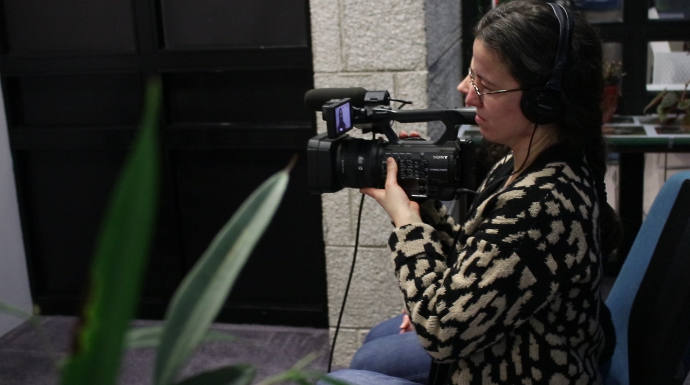
Building on our 30+ years experience in community based video and thanks to our successful experience in pioneering the use of remote participatory video we have designed a hybrid bespoke training programme in two phases.
During the first phase we have delivered a 2 day workshop: Spectacle brought to the Hutton Institute in Aberdeen our equipment, including a range of professional camera types, mics, lights, and tripods etc., to run an intensive introduction to the use of video tools.
In two days, along with demystifying the technology and learning how cameras work, we have shared tricks to work as a team, giving the opportunity to acquire hands-on experience on how to film interviews, document events and locations and approach visual storytelling in the context of research.
All attendees have really valued the way Spectacle delivered a great quantity of technical knowledge in a relatively short time, with practical exercises that are fun and illustrative of all the challenges involved in video making. The learning experience is designed so that it can be applied in any research field: assuming no prior knowledge, using transferable skills to establish a creative environment where everyone can develop new skills and feel confident that their ideas matter.
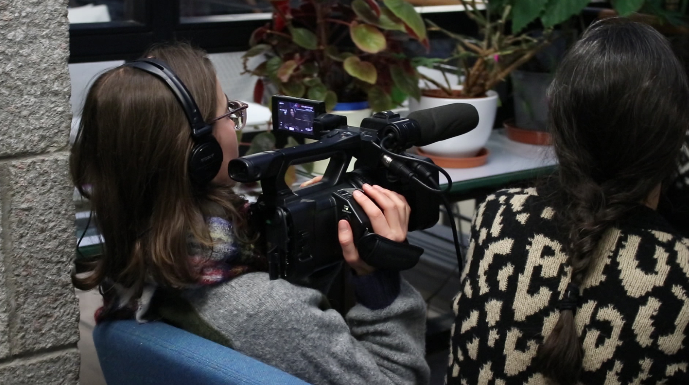
The training programme will continue on Zoom with remote video editing sessions, a tool we have successfully included in our participatory practice as well as in our training activity. We will deliver a series of short modules exploring editing softwares, workflows, tools for editing and methods to enhance editorial collaboration and participation.
All participants will be able to attend from their own computer and review in their own time the recordings of the training sessions in case they miss one. Our online participatory video editing, successfully applied in a range of projects, allows editorial control to be shared either among researchers engaged in the same project or with research participants.
If you want to learn more about our training courses and our offer, please visit our website or contact us at training@spectacle.co.uk. If you are a member of a research group and want to bring our training to your institution, we are happy to illustrate our bespoke training offer and discuss the content that best suits your needs. All our training can be entirely in person, remote or hybrid, and can include follow up tutorials, troubleshooting and project support as well as video editing support for participatory video projects and short documentary productions.
Sign up to our Newsletter to hear about new courses and discounts.
Spectacle Homepage
Like Spectacle Documentaries on Facebook
Follow us on Twitter/X, Instagram, Vimeo, Youtube and Linkedin

